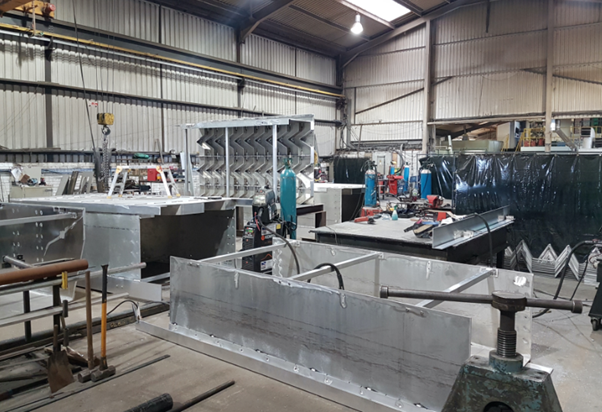The industry of metal fabrication in UK is undergoing a transformative phase, with advancements in technology and innovative practices setting new benchmarks in quality and precision. This progression is driven by a combination of skilled craftsmanship, cutting-edge machinery, and a commitment to excellence that defines the sector today.
Evolution of Metal Fabrications in UK
The history of metal fabrications dates back centuries, with the country playing a pivotal role in the Industrial Revolution. Over time, the industry has evolved significantly, embracing new technologies and methodologies to meet the changing demands of various sectors, including construction, automotive, aerospace, and consumer goods. The traditional methods have not been abandoned; instead, they have been enhanced by modern techniques, ensuring that UK metal fabrications remain at the forefront of global standards.
Embracing Technological Advancements
One of the most notable developments in the UK metal fabrication industry is the integration of advanced technologies. Computer Numerical Control (CNC) machinery, for instance, has revolutionised the way metal components are manufactured. CNC machines allow for unparalleled precision, producing parts with exact specifications and minimal tolerances. This technology not only improves the quality of the output but also significantly reduces waste and production time.
Additionally, the adoption of laser cutting and welding technologies has further enhanced the capabilities of metal fabrications in UK. Laser cutting offers a level of accuracy and speed that traditional methods cannot match, while laser welding provides strong, clean joints with minimal distortion. These advancements are crucial in industries where precision and reliability are paramount, such as aerospace and medical device manufacturing.
Skilled Workforce and Training
Despite the influx of advanced machinery, the importance of a skilled workforce cannot be overstated. The UK boasts a rich heritage of metalworking skills, passed down through generations. Today, this tradition continues with a strong emphasis on education and training. Apprenticeship programmes and specialised training courses ensure that the workforce is well-versed in both traditional techniques and modern technologies.
Moreover, ongoing professional development is a key focus in the industry. Fabricators are encouraged to continually update their skills and knowledge, keeping pace with technological advancements and industry trends. This commitment to training ensures that UK metal fabrications maintain their reputation for quality and precision.
Commitment to Quality and Standards
Quality assurance is a cornerstone of the metal fabrication industry in the UK. Companies adhere to stringent standards and certifications, such as ISO 9001, to ensure that every product meets the highest quality benchmarks. These standards cover all aspects of the production process, from material selection and machining to final inspection and delivery.
In addition to ISO certifications, many UK metal fabricators comply with sector-specific standards, such as those set by the British Standards Institution (BSI) and the Aerospace Standards (AS). Compliance with these standards is a testament to the industry’s dedication to excellence and its ability to meet the exacting demands of its clients.
Sustainable Practices in Metal Fabrication
Sustainability is increasingly becoming a critical factor in the metal fabrication industry. UK fabricators are leading the way in adopting eco-friendly practices, recognising the importance of reducing their environmental footprint. This includes the use of sustainable materials, energy-efficient processes, and waste minimisation strategies.
For example, many companies are now using recycled metals in their production processes, which not only conserves natural resources but also reduces energy consumption. Advanced machining techniques, such as CNC and laser cutting, also contribute to sustainability by maximising material utilisation and minimising waste.
Future Trends in Metal Fabrications in UK
Looking ahead, the future of metal fabrication is bright, with several trends poised to shape the industry. One significant trend is the increasing use of automation and robotics. Automated systems can perform repetitive tasks with high precision and consistency, freeing up skilled workers to focus on more complex and creative aspects of fabrication.
Another promising development is the rise of additive manufacturing or 3D printing. While traditionally used for prototyping, advancements in 3D printing technology are enabling its use in the production of final metal parts. This method offers design flexibility and can produce complex geometries that are difficult or impossible to achieve with conventional techniques.
Furthermore, the integration of the Internet of Things (IoT) and smart manufacturing technologies is set to revolutionise the industry. IoT-enabled machines can communicate and coordinate with each other, optimising production processes and improving efficiency.
Conclusion
Metal fabrications in UK are indeed setting new standards in quality and precision, driven by a combination of technological advancements, skilled craftsmanship, and a commitment to excellence. As the industry continues to evolve, embracing new technologies and sustainable practices, it is poised to maintain its position as a global leader in metal fabrication. The future holds exciting possibilities, with innovations that will further enhance the quality, precision, and sustainability of metal fabrications.

